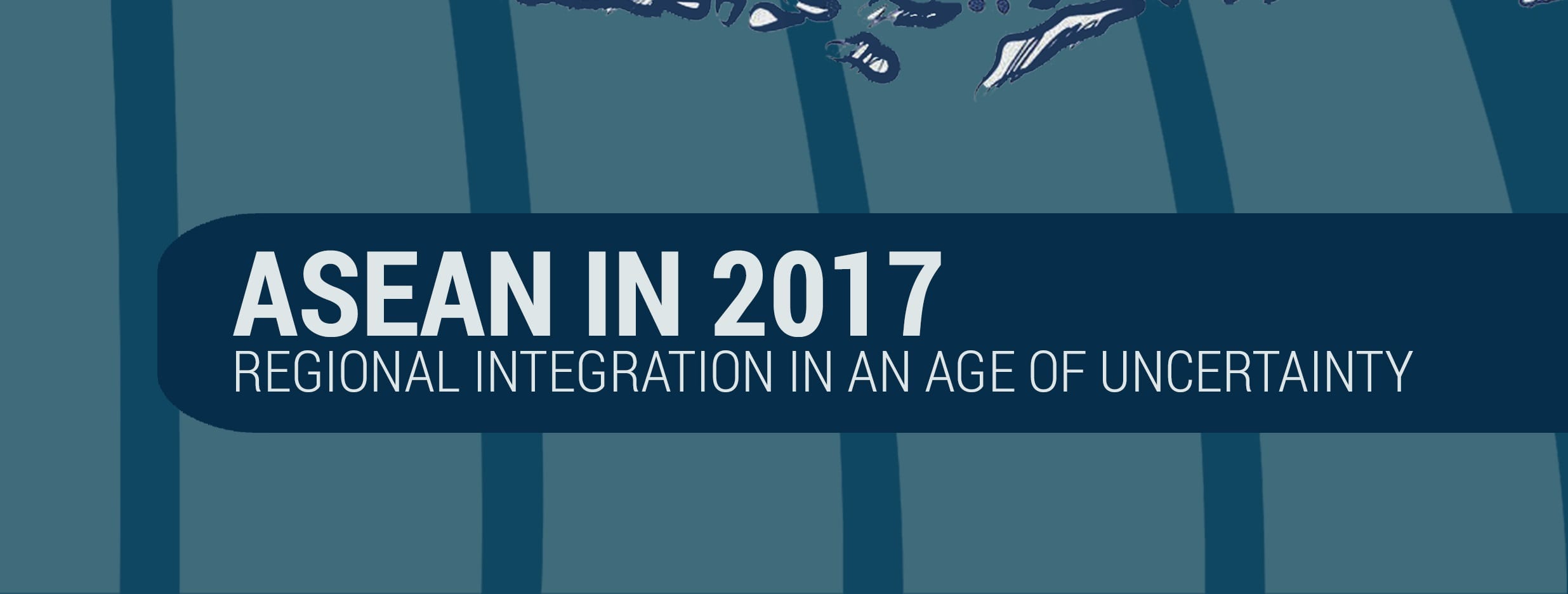Bincang ASEAN: ASEAN in 2017, Regional Integration in an Age of Uncertainty
Earlier this year, four researchers from ASEAN Studies Center, Faculty of Social and Political Sciences, Universitas Gadjah Mada, namely Ahmad Rizky M. Umar, Dedi Dinarto, Dio Herdiawan Tobing, and Shane Preuss have offered policy recommendations for ASEAN in a brief monograph entitled “ASEAN in 2017: Regional Integration in an Age of Uncertainty.”
The fourth Bincang ASEAN put effort to disseminate the monograph. Generally, the publication informs readers on how ASEAN should react towards geopolitical crisis. This discussion was a response on the failure of ASEAN to overcome the regional issues.
Three topics were discussed. Firstly, Dinarto reviewed the political issue on how Rodrigo Duterte dealt with maritime security and overcome the on-going crisis in South China Sea. He found out that Duterte remains unclear on how he will pursue maritime security, despite Duterte’s attention in maritime domain.
Regarding to this stance, Dinarto offered three recommendation: 1) ASEAN under Philippines should engage more with China, 2) ASEAN should be adaptive and fluid; and 3) ASEAN should reconsider its core principles and values.
The second issue was economic. Preuss discussed how ASEAN has fallen short to overcome low-skilled labour migration referred to Thailand – Cambodia Momerandum of Understanding (MoU).
As the solution, Preuss outlined the following recommendations: 1) identify sectors and industries with labour shortfalls; 2) develop and integrated regional framework for ensuring affordable and safe migration; 3) lower the costs of sending remittances by improving low-skilled worker access to financial institutions in their host state; and 4) facilitate integration policies for temporary low-skilled migrants.
The third was socio-cultural issue. Discussing the issue of refugee diplomacy, Tobing argued that the current state-centric approach has failed to solve Rohingya. Therefore, he proposed several recommendations under socio-cultural banner: 1) make use of ASEAN’s strategic measure to reduce barriers in multicultural community; 2) promoting multi-stake holders and community-based approaches; and 3) ASEAN must keep on engaging with Myanmar through its members.
Another serious part that still lagged far behind was social integration. Umar reviewed the social purpose of ASEAN regarding two key principles of ASEAN regional integration: “people oriented” and “people-centred”. If only this principle had been applied, ASEAN would have face a bright future. “It is not too late to start. Acknowledging and embracing the difference is the most important thing,” he ensured.




